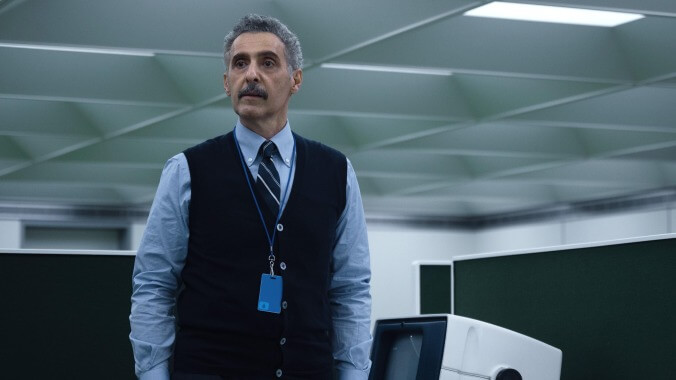TV's composers are feeling the pressure from the "skip intro" button
What makes viewers keep listening when they don't have to?

Love Ted Lasso but hate Mumford & Sons? The skip intro button is there for you. As much as it might be a blessing for impatient viewers, this bit of streaming UI poses a previously unseen challenge for TV’s composers who want their work to be heard. A new report from Variety, noting that Netflix says that users hit “skip intro” 136 million times a day, asks this year’s Emmy nominees for Outstanding Original Main Title Theme Music to weigh in on the state of their industry.
“It makes people want to up their game and to do something so catchy that people want to hear it,” describes Natalie Holt, who was nominated for Loki. While she certainly put the work in for the God of Mischief’s retrofuturistic theme, it must be a relief that her show is part of a franchise that’s trained its fans to stay glued to the credits. (When it comes to getting her work heard, Holt has even bigger concerns: she had written 90 minutes of the Batgirl score before the HBO Max movie was unceremoniously axed.)
The title sequence for Only Murders In The Building frequently gets changed up to include Easter eggs for new details in the mystery, so eagle-eyed viewers stay focused during those 51 extra seconds, which Siddhartha Khosla calls “the biggest, hookiest part of the chorus.” Arconiacs also don’t have as much of a choice, as Hulu is one of the only streaming services that doesn’t have a skip intro button.
Theodore Shapiro, whose eerie Severance theme “underscored the idea of this show as one big puzzle,” has the benefit of his work being paired with artist Oliver Latta’s uniquely trippy visuals in the opening title sequence. Though it might not offer as many clues about the Lumon conspiracy as fans might hope, that coffee cup full of little Adam Scotts is impossible to look away from.
Composers also have to keep other concerns in mind when it comes to adapting to the ways shows are consumed now.
“I had to make music that sounded nice not only in theaters but also on cell phones,” Jung Jae-il of Netflix’s Squid Game tells Variety. “I refrained from using very low notes or dramatic changes in dynamics to ensure that the music would sound good when heard through earphones or laptop speakers.”